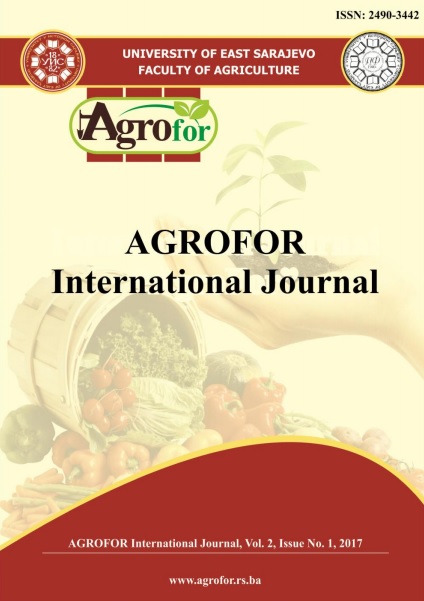SEED GERMINATION RATES OF DIFFERENT COOL SEASON LEGUMES
DOI:
https://doi.org/10.7251/AGRENG1701035SAbstract
Temperature is the main factor affecting plant growth and development. Seed
germination and seedling establishment are the most critical stages in the life cycle
of plants For the purposes of the study, the germination temperatures of six coolseason
legumes (Vicia faba, Lens esculentus, Vicia sativa, Lupinus albus, Pisum
sativum, and Lathyrus sativus) important cultivars were determined. Seed
germination rate was measured at different temperatures in the range 4-10 C in a
growth chamber with constant parameters (light, water) at three-day intervals for a
period of three weeks. Each treatment was repeated four times for each temperature
value, where 100 seeds were placed in five different separate glass made
containers. The measurements were taken at three-day intervals. A seed was
deemed to have germinated when at least 1 mm of radicle was visible. It was found
that pea germinated faster than the rest cultivars under low temperatures, whereas
Vicia sativa and Lathyrus sativus showed the slowest germination rates. The
descending order of germination rate Pisum sativum> Vicia faba > Lens
esculentus> Lathyrus sativus >Vicia sativa>Lupinus albus. Germination rate
increased with increasing temperature for all cultivars. Lupinus albus was the
legume seed with the less germination percentage. Therefore, temperature is the
most limited factor on germination process and the increase of 4 degrees is enough
to give better germination results. As a general conclusion, Pisum sativum and
Vicia faba may satisfactorily germinate in rather cool micro-environments, and
their sowing in the fall may be postponed for some weeks without substantial
germination risk comparing to the rest legume cultivars.

